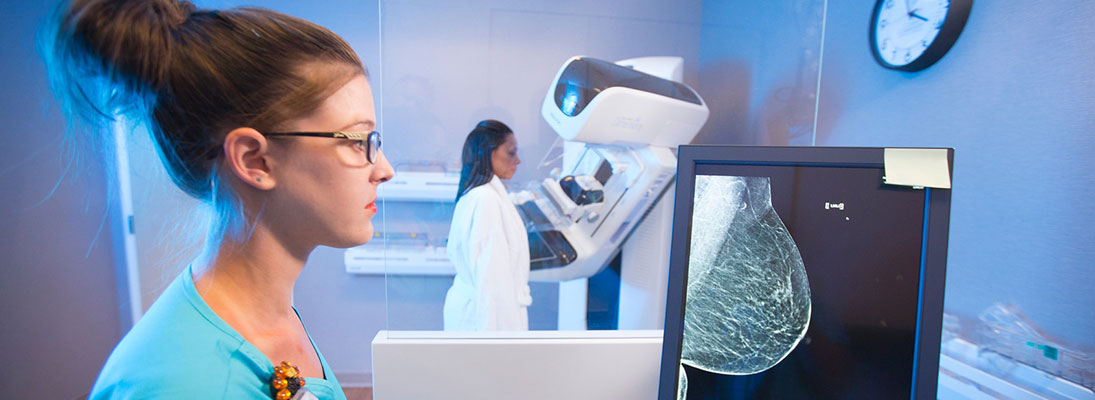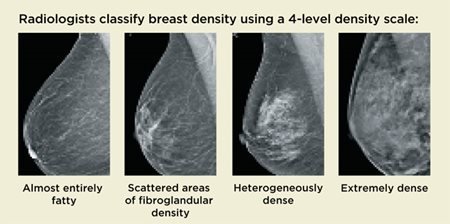
What is breast density?
Breasts are made up of a mixture of fibrous and glandular tissue and fatty tissue. Your breasts are considered dense if you have a lot of fibrous or glandular tissue but not much fat. Density may decrease with age, but there's little, if any, change in most women.
How do I know if I have dense breasts?
Breast density is determined by the radiologist who reads your mammogram. There are four categories of mammographic density. The radiologist assigns each mammogram to one of the categories. Your doctor should be able to tell you whether you have dense breasts based on where you fall on the density scale, below.

Why is breast density important?
Having dense breast tissue may increase your risk of getting breast cancer. Dense breasts also make it more difficult for doctors to spot cancer on mammograms. Dense tissue appears white on a mammogram. Lumps, both benign and cancerous, also appear white. So, mammograms can be less accurate in women with dense breasts.
If I have dense breasts, do I need a mammogram?
Yes! A mammogram is the only medical imaging screening test proven to reduce breast cancer deaths. Many cancers are seen on mammograms even if you have dense breast tissue.
Are any tests better than a mammogram for dense breasts?
In breasts that are dense, cancer can be hard to see on a mammogram. Studies have shown that ultrasound and magnetic resonance imaging (MRI) can help find breast cancers that can't be seen on a mammogram.
However, both MRI and Ultrasound, show more findings that are not cancer, which can result in added testing and unnecessary biopsies. Also, the cost of ultrasound and MRI may not be covered by your insurance.
What should I do if I have dense breasts? What if I don't?
If you have dense breasts, please talk to your doctor. Together, you can decide which screening exams are right for you.
If your breasts are not dense, other factors may still place you at increased risk for breast cancer - including family history of the disease, previous chest radiation treatment for cancer and previous breast biopsies that show you're high risk. Talk to your doctor and discuss your history.
Even if you are at low risk, and have entirely fatty breasts, you should still get a mammogram starting at age 40. Women at high risk may benefit from starting earlier.
We use cookies and other tools to optimize and enhance your experience on our website. View our Privacy Policy.

